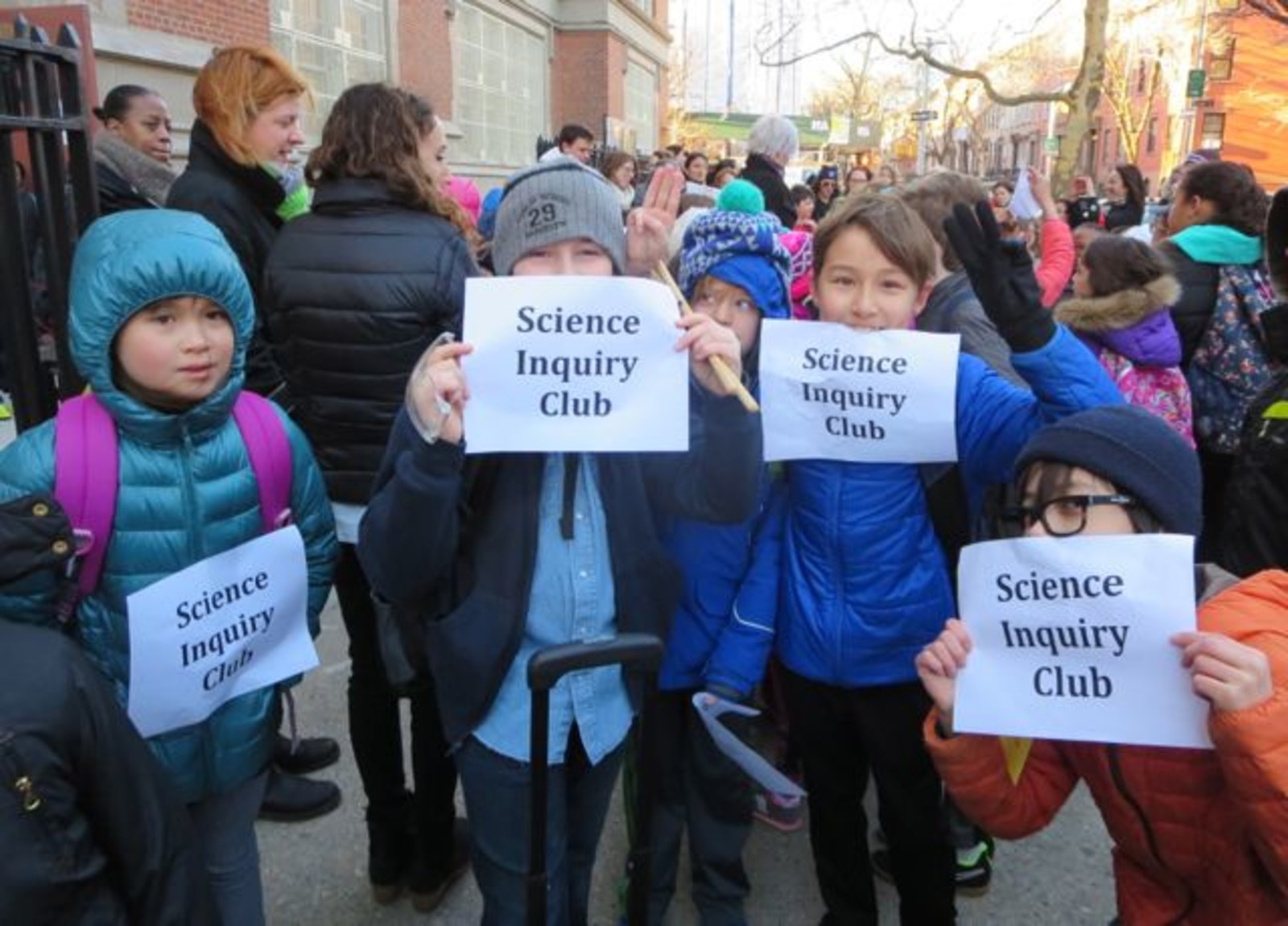"Hey, ho! Cuomo's plan has got to go"

Hundreds of children, parents, teachers, and school leaders encircled PS 29 in Cobble Hill, Brooklyn before school this morning. Despite the chilly weather, the school community was fired up against Governor Cuomo’s proposed education reform in New York. Many feel it will harm children, teachers and communities—and I am one of them.
Cuomo aims to take teacher evaluation out of the hands of public school leaders and communities and into the hands of computers and outside evaluators. He proposes having teachers’ evaluations consist of: 50 percent student state test–score growth, 35 percent outside evaluators’ observations, and only 15 percent school leader's assessment. Research indicates that the computer calculation that evaluates teachers based on test-score growth has a high error rate (35 percent), because it cannot account for the many other factors in children’s lives. Its accuracy is almost as random as a coin toss. The most reliable evaluators of teachers are experienced educators within schools, who know the context, curriculum and the stakeholders.
Voices chanted in unison, “Hey, hey, ho, ho! Cuomo’s plan has got to go!” Later on protesters sang, “We are agents of change” as they shook egg shakers. Many children held signs representing important aspects of a curriculum that public schools may lose to make way for test prep, such as art, music, technology, hands-on science, drama, physical education and social studies. Students may also lose clubs including science inquiry, newspaper, running, chorus, art, gardening and green team.
Many effective educators may leave the field as pedagogy becomes less intellectual and creative for everyone involved. Four years ago I quit my position at the United Nations in order to become a teacher. I felt inspired to engage students in a creative and intellectual process of discovery. Teaching is the most challenging and rewarding profession I have encountered—even compared to working in refugee camps in Africa.
As an elementary science teacher, I love teaching abstract concepts by guiding students to conduct concrete experiments. To instruct, engage, assess, manage, differentiate, enrich and support students, I have often worked 12-hour days, including weekends and holidays. As a reward, most of my students are engaged and curious and demonstrate a genuine love of learning. If this reform extinguishes the twinkle in their eyes in class, teaching may cease to be an inspiring field to professionals like me.
I am hopeful that as teachers and families rally together, Albany will hear our voices and save our schools.
Brigitte Bürgler teaches science at PS 29 to more than 300 students, emphasizing sustainability, technology and environmental studies through hands-on investigations. Before becoming a teacher, she lived in Brazil, Cameroon, Ghana, and Mozambique, working as an international development consultant for various United Nations agencies, non-governmental organizations and the World Bank.
Please Post Comments